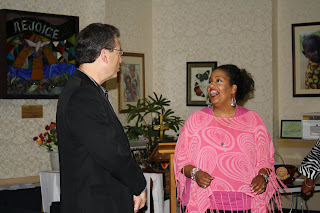Yesterday, the Pulitzer Prize for Public Service -- the highest award among journalism's highest awards -- went to the Philadelphia Inquirer for "Assault on Learning," a series on violence in the city's schools. In all the excitement, it is easy to overlook that the Prize honored more than print.
The prize for public service goes to an entire paper rather than an individual. The Pulitzer committee said the Inquirer's series used "powerful print narratives and videos to illuminate crimes committed by children against children and to stir reforms to improve safety for teachers and students." The Inquirer created a database to document tens of thousands of serious incidents, ranging from robberies to sexual assaults. It was a year-long project by a team of reporters, editors, photographers, designers and multimedia specialists.
Other new media journalists were honored by the Pulitzers, notably The Huffington Post. The Emmys have been honoring interactive television for a few years now. All of these examples remind us of the many tools at our disposal to get our messages out. Press releases are not moribund, but neither are they the only weapons in our arsenals. They are just one part of a strategic campaign, combined with blogging, Twitter and more.
The Philadelphia Inquirer, a member of the supposedly staid Fourth Estate, recognized this. Yesterday, it paid off big for them. Also for many students in Philadelphia.
You can view the entire series Assault on Learning by clicking here.
I hate having to earn money, but I like knowing what makes me valuable
-
The only way I find out what people value most about me is by having to
sell something. Otherwise I’m just guessing. And I pretty much always guess
wrong...
6 months ago










